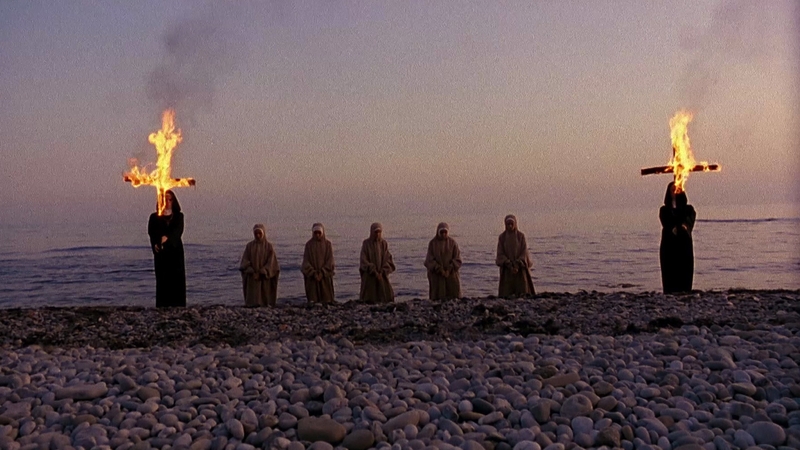
Mariano Baino’s international co-production Dark Waters (1993) is the master of horror’s most accomplished film. Dark Waters sees Baino cohesively melding together disparate elements of the horror genre to successfully build on some of the most familiar tropes. One sees elements of Robin Hardy’s The Wicker Man (1973), Ken Russell’s The Devils (1971) and plenty of H.P. Lovecraft in Dark Waters.
Dark Waters tells the story of Elizabeth (Louise Salter) who, after the death of her father, journeys to Italy to visit the convent where she was born and to which her father had been donating significant funds. Located on a small island, the convent is more than meets the eye. Unbeknownst to Elizabeth the sisters have forsaken their vows to appease a Lovecraftian monster trapped upon the island. With the help of Sister Sara (Venera Simmons), it isn’t long before Elizabeth realizes the true sinister purpose to her visit.
Baino’s story isn’t the strength of Dark Waters, it is in the imagery. By employing the tried and true method of inverting Catholic iconography and conjuring up locations like a candle-lit catacombs Baino is able to create a film that is propelled entirely on the strength of its atmosphere. Despite an obviously low budget Dark Waters is a highly affecting piece of macabre horror for this very reason.
Interestingly Baino opts not to sexualize the nuns as is typical of such films. The fetishistic indulgence of Dark Waters is the gore and light body horror. It is here that the terror of Dark Waters finds its most visceral manifestation. The slimy rubber of the nuns’ mutilated bodies and the monster’s tentacle-like form is uncanny enough in design that the plasticity of the make-up effects become secondary.
Dark Waters uses the conventions of horror and nunsploitation to create a compelling portrait of Elizabeth’s internal crises of faith and identity. With the male characters all locked in the periphery of the narrative, Elizabeth’s quest for self realization takes on a wider reaching allegorical meaning. The things that repel Elizabeth about Catholicism centralize the patriarchal structure of that theological system suggesting that the demonic monster is the equivalent to Christian faith in so far as how both function as a means of oppressing women.
Between Baino’s cinematic techniques and the potential for complex social and political readings, Dark Waters is a superior entry in the nineties B-movie canon. Dark Waters is only now getting its due thanks to Severin Films. It may not be a classic but it is a must-see for connoisseurs of both the horror and nunsploitation genres.
